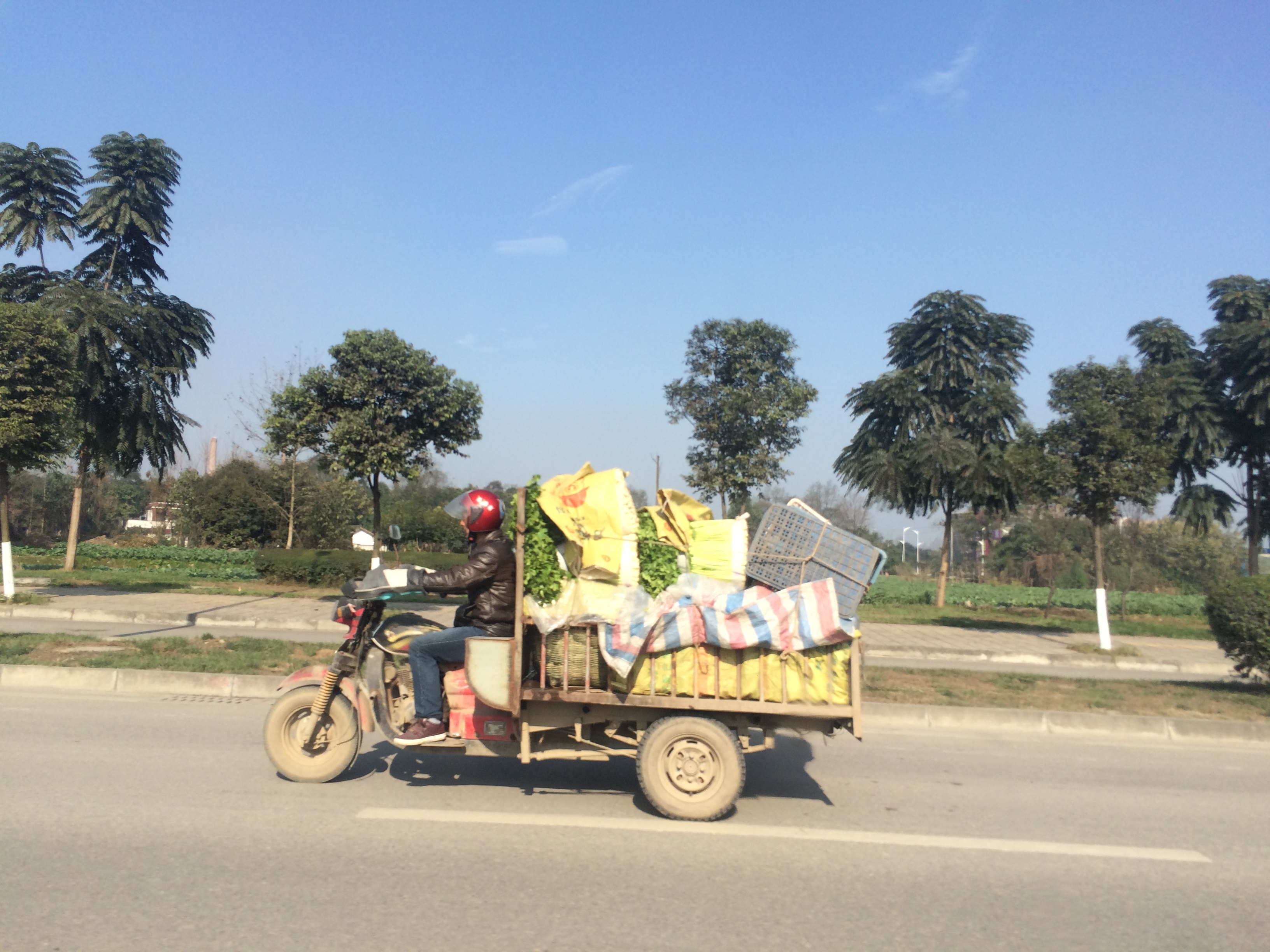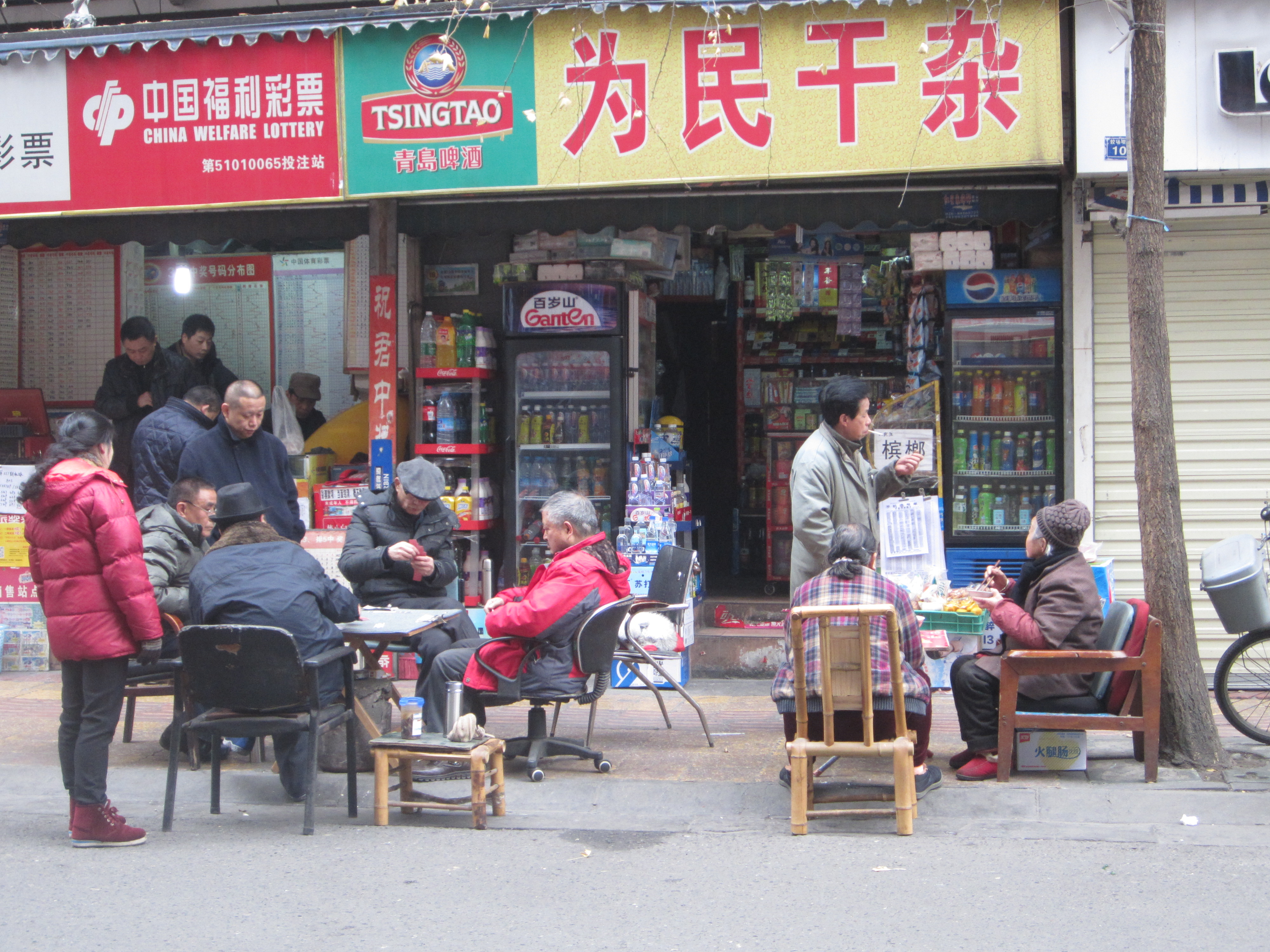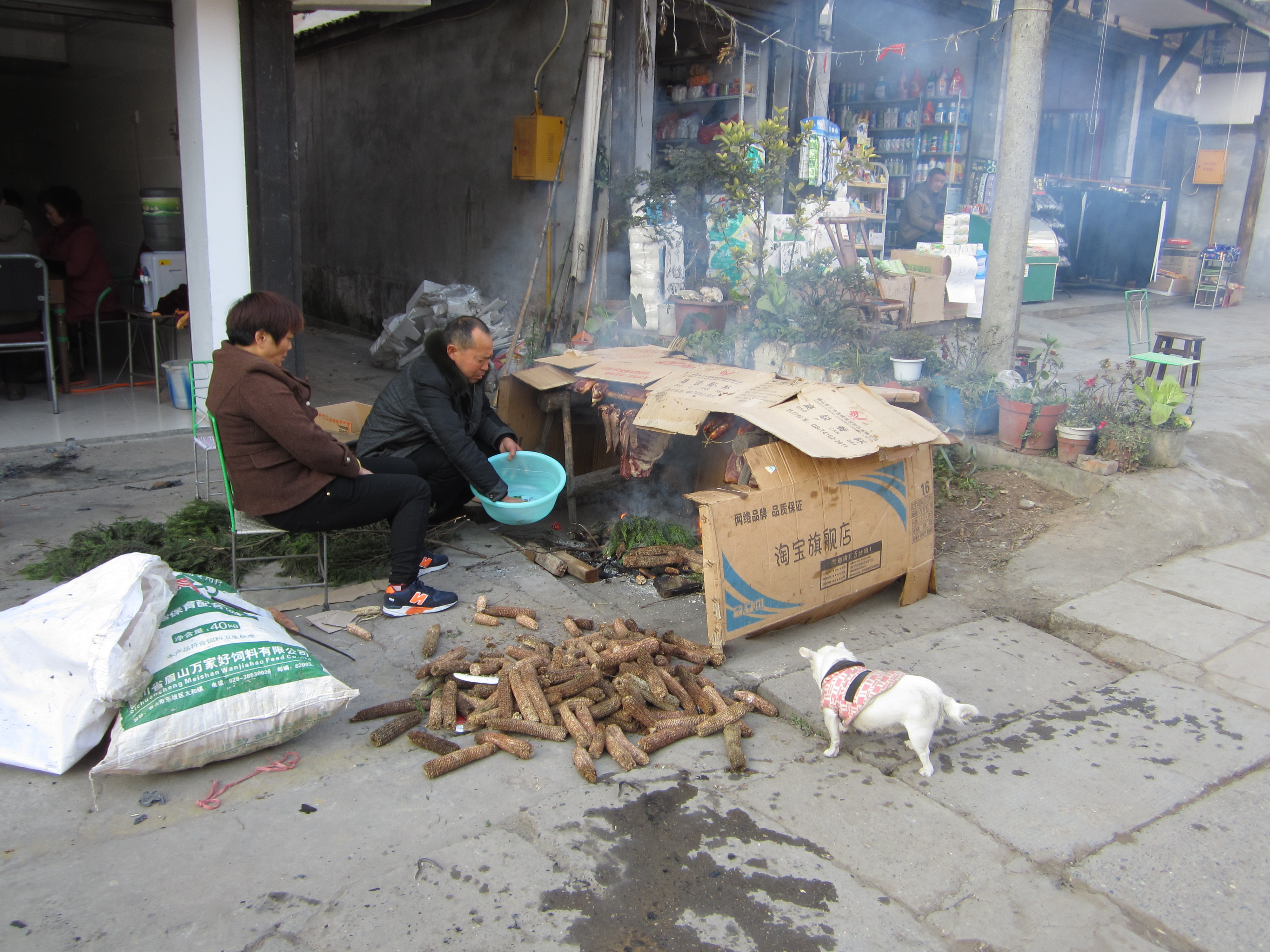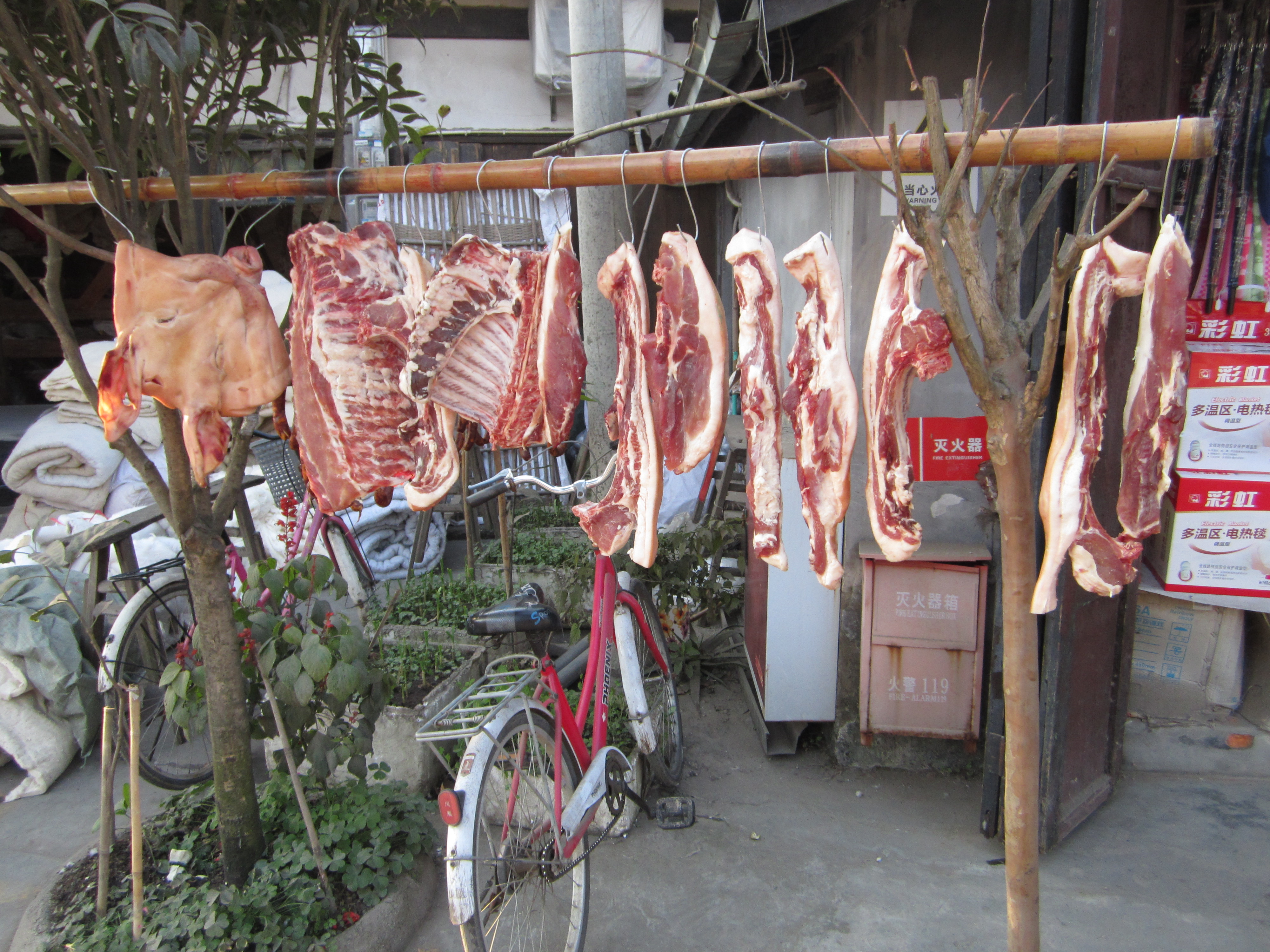Arrival in Sichuan
We’ve just landed in Sichuan province to visit a potential chef for the restaurant, Chef Xu (pronounced ‘Shu’). He and his wife picked us up from the airport. They don’t speak any English but we share a handshake and a ‘ni hao’. Joshy and Georgina seem really chilled with them and Chef Xu Shu is very chatty, so it’s a comfortable car journey. Through bleary eyes, I soak in the sunshine and the fresh air, a big change to the smog of Tianjin, in which most people ensure they cover their faces with scarily surgical-looking masks. The green smell indicates a welcome freedom from the bustle of the city, and a much more unusual experience for a western girl coming up! Initially, the flat landscape, farm vehicles and dry wide roads remind me of the Californian countryside but there’s a rough edge to the farming shelters, roof tiles slipping away.

It’s getting lush and green by the sides of the road. In the outskirts of Beijing, Joshy had pointed out a number of tree farms - huge fields of saplings that can’t grow in the city due to the pollution, and have to be trucked in to add some colour to the concrete jungle. There’s certainly no need for that here!
The whole village seems to be based around food, in a very hunter gatherer style. Washing hangs haphazardly from makeshift washing lines, and sausages are hanging from a fence to cure. Although it’s evident from the volume of hotels and restaurants that in season, such as Chinese New Year, the town fills up with visitors, it’s still very much a working town. We wandered the streets when we arrived, soaking in the relaxed, spicy atmosphere of the locals, many of whom, young and old we’re sat around small wooden tables in the street playing Marjian, surrounded by clouds of cigarette smoke.

We we’re hit by an intense, thick smoky aroma as we walked, and realised we had found the answer: smoking the meat. It doesn’t get much more traditional than this: a bamboo frame over a fire made from the leftovers of barbecued ears of corn and pine leaves (which the local man tells us adds flavour as he spats with the woman running the show about how much to put on. She wins.). The meat which has dried from hanging is placed on the frame and covered in layers of cardboard. The smoke fights to escape upwards between gaps in the cardboard, but ends up seeping out from the sides in all directions, running away down the street.

We were aghast at the sight of pigs heads hanging on a washing line. The chefs with whom we lunched explained that pork knee is a Sichuan delicacy, an art; there must be a pork knee on the table at each meal in a restaurant, it indicates a ‘proper’ dining experience.

